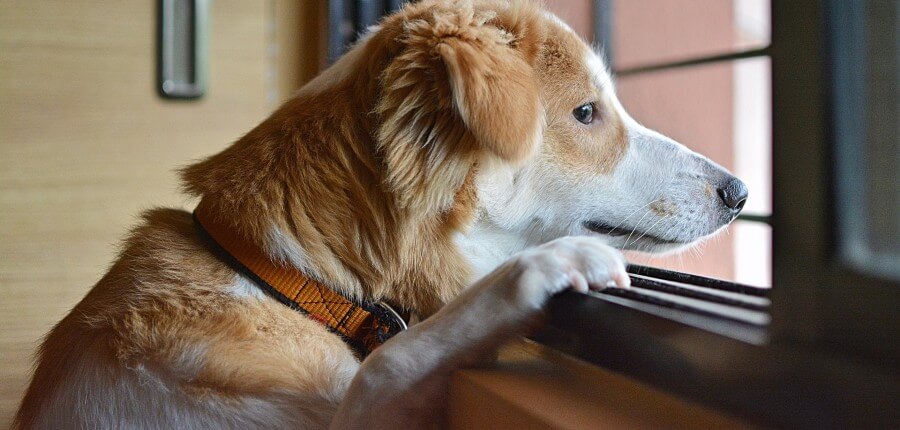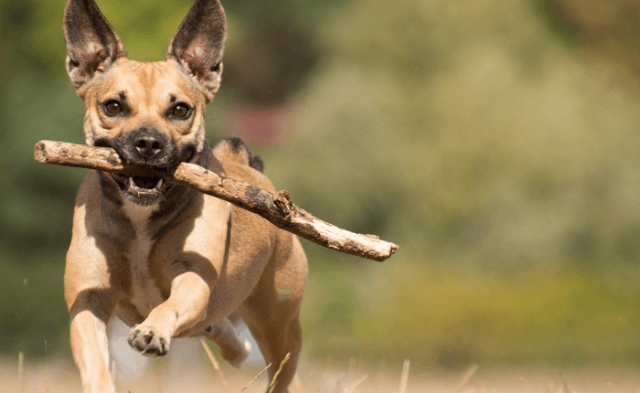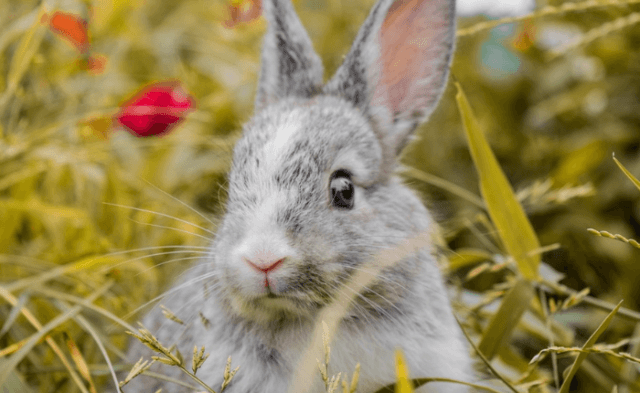People around the world are bemoaning having to stay mostly at home for some weeks because of COVID-19. After just a day or two – even with the internet, Netflix, books, music, games, FaceTime and endless other ways to entertain themselves and stay connected, not to mention walks in the park and trips to the grocery store – many people reported feeling lonely, bored, restless, or even depressed or angry.
Perhaps this will help them empathize with their dogs.
Many people say they “love” their dogs – they may feed them, take them to the veterinarian and buy them expensive collars and toys – but they deprive them of their most basic and vital needs day after day, by leaving them in total isolation for nine or more hours at a time.
The only social interaction many of these “family members” have is when their owners come home from work, dump some food in their bowl, give them a quick pat on the head and a zip around the block – impatiently pulling them along when they try to sniff – before rushing out again for the rest of the evening, leaving them to spend even more hours lonely.
This is cruelty. Yes, just like puppy mills or dogfighting. And it’s even worse when people crate dogs like prisoners inside their own homes. Their minds and muscles atrophy, and they must either endure the discomfort of “holding it” or lie in their own waste. If a fire or other disaster strikes, they have no chance of escape – some dogs have burned or drowned to death in these canine cages.
With more people at home now, many dogs are relishing a reprieve from the mind-numbing tedium and soul-crushing loneliness of spending their days staring at the wall, waiting for their owners to come home. Yet, when the pandemic is over and people return to their routines, will they also go back to warehousing these living, thinking, feeling beings like old shoes?
And while some dogs may be getting more walks lately, many must still keep their guardians’ pace, not go at their own, and are fitted with choke or prong collars that strangle them or stab them in the neck if they pause to investigate anything interesting. Recently, while stuck in traffic, I saw a woman tugging a reluctant dog, all four feet dragging along the ground, across the street – her schedule was too tight, her life too important, for her to allow the dog a moment to sniff a lamp post.
Dogs’ noses are so sensitive that one whiff can tell them who passed by a spot earlier and what kind of health they were in. Stopping to sniff is just as important to dogs as checking the news or Facebook is to us. Depriving them of this basic pleasure is simply cruel.
Many people feel that the pandemic has taken over many aspects of their lives, but humans control every aspect of dogs’ lives, from what and how often they can eat to when and where they can relieve themselves. Imagine how that would feel. So many dogs never get a chance just to behave like dogs – to sniff, run, dig and bark.
While humans talk a blue streak, the minute dogs utter a peep, they get shushed. Not only is it rude never to let dogs get a word in edgewise, it’s also their right to use their voices, and if we don’t pay attention, we’re missing what they’re saying to us. As I write in my new book, Animalkind, dogs modify the pitch, timing and amplitude of their barks to convey different messages. They have separate growls for tussling over food and to warn of approaching strangers, for example. Many dogs have warned their guardians of fires, intruders or other dangers, saving their lives – all the more reason to let them speak and to listen when they do!
So let’s take this opportunity to spend time with our dogs, make their lives interesting and give them some freedom. Let’s throw away the crates, never lock them up again and arrange for a trusted person to give them exercise and companionship when our normal workdays resume. Let’s let them set the pace on walks, choose which way to go and linger over interesting scents as long as they’d like.
No one should have to spend their life on lockdown simply because they walk on four legs instead of two.





